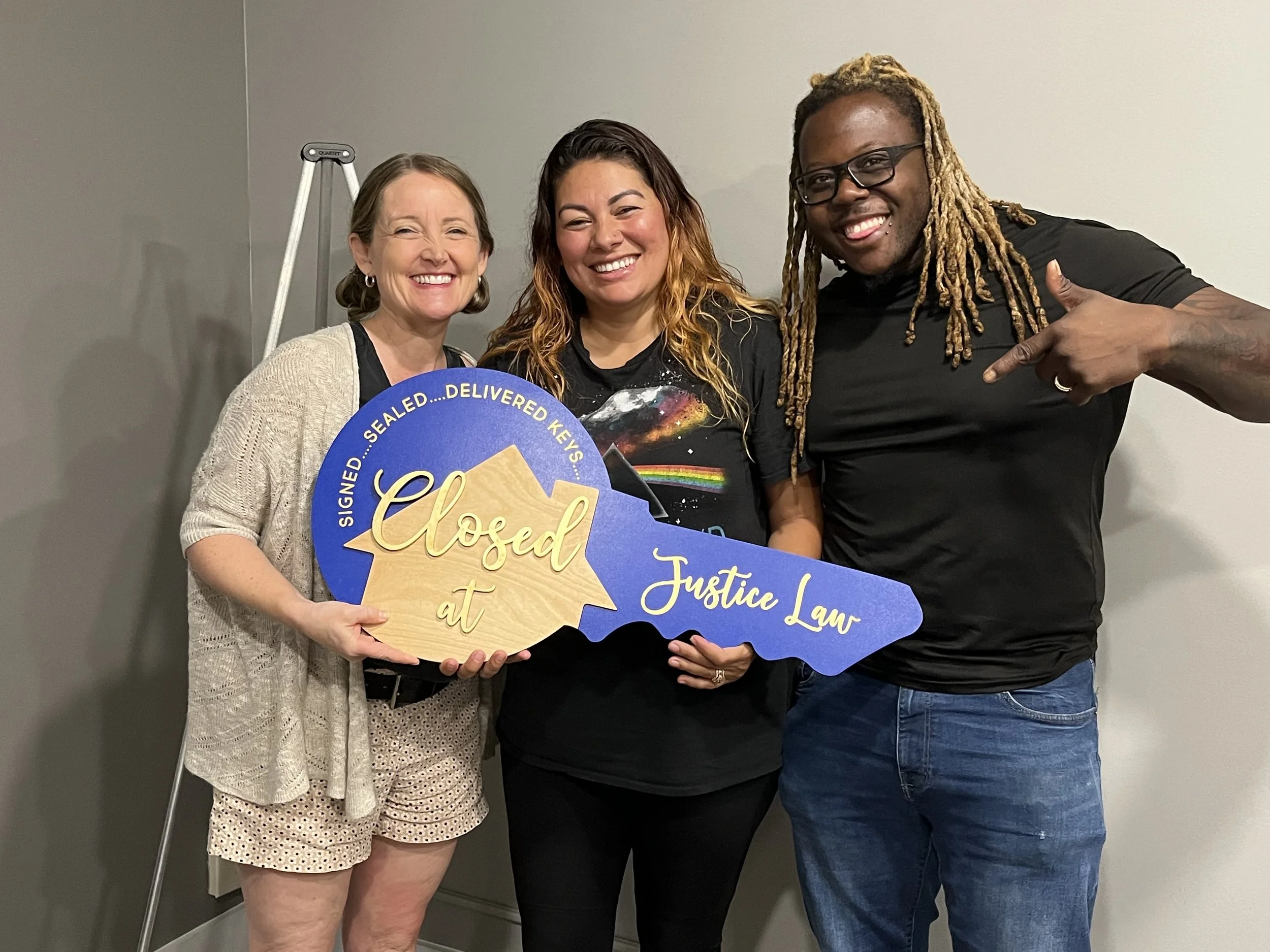Understanding Buyer Agent Fees and How the Negotiation Really Works
Buying a home should feel exciting, not confusing. With all the recent changes to how buyer agent commissions work, it is more important than ever to understand who pays what, how negotiations happen, and how your agent protects you every step of the way.
I’ve talked to many of my buyers about buyer agent commissions and how they’ve changed in the last year. Some people in the media have made it sound confusing or even concerning for buyers, but the truth is simpler (and much more practical). Let’s break it down and talk about how these fees really work, what’s changed, and how I handle them in every transaction to protect my clients.
How Buyer Agent Fees Traditionally Worked
For decades, real estate commissions have been structured so that the seller pays the total commission at closing, which is then divided between the listing agent and the buyer’s agent.
This structure became the norm because it encouraged buyers to access professional representation without having to pay for it upfront, helping more people purchase homes safely and confidently.
In our area, and many others, the buyer agent fee has frequently been 3% of the purchase price, which covers the full range of services provided — from negotiations and contract management to inspection coordination and closing support.
What’s Changed (and Why)
In 2024 and 2025, national attention turned toward how buyer agent commissions are displayed and negotiated, largely following NAR’s settlement agreements and policy updates that responded to antitrust lawsuits.
Here’s what’s new:
Buyer agent compensation is now openly negotiable and more transparent. It’s no longer automatically set at any standard amount in MLS listings.
MLS systems can no longer require sellers to offer a buyer agent commission in order to list their property.
Buyers now sign Buyer Agency Agreements upfront before any homes can be shown or toured (as we do in North Carolina) that clearly define how their agent will be compensated.
Offers can now include a buyer-requested concession from the seller to help cover the agreed-upon buyer agent fee when the seller’s listing doesn’t already include it.
The goal of these changes is to make commissions more transparent, not more expensive. Buyers still typically do not pay the fee out of pocket. Buyer agent commission is now negotiated differently within the contract.
When the Seller Offers Less Than 3%
If a seller is offering less than the full 3%, I handle it by building that difference right into the Offer to Purchase.
Before I write up any offer, I contact the listing agent to confirm what buyer agent fee the seller is offering. If it’s less than 3%, I calculate the difference and include it as a seller-paid concession in the offer.
That way:
Buyers are not personally responsible for paying that difference as long as the seller agrees to the concession.
My compensation stays consistent and fair.
You continue to receive full, experienced representation at every stage of the process.
However, if the seller rejects the offer or counters without agreeing to pay the concession, that’s when the buyer and their agent discuss next steps. Some buyers choose to cover part of that difference to make their offer more competitive, while others prefer to keep searching for homes where the seller is offering the full amount.
Each agent handles this situation differently depending on many factors such as how long the property has been on the market and how competitive the offer their buyer is making. Some may choose to waive a portion of their fee (for example, 0.25% or 0.5%) for repeat clients or under special circumstances. Others may not be able to reduce their fee due to the time, coordination, and liability involved in representing a buyer. It’s ultimately up to each individual agent to decide if they’re willing to work at a reduced rate, and that decision should reflect both the agent’s value and the level of service they’re providing.
🧾 Example
Let’s say you’re purchasing a $400,000 home, and the listing offers a 2.5% buyer agent commission. The standard 3% would equal $12,000, so there’s a $2,000 shortfall.
I would simply include that $2,000 as part of your seller-paid concessions in the offer. At closing, the numbers balance, the seller covers the difference, and you still get full representation without paying extra.
If the seller declines to cover that concession, we’ll revisit your options together and decide what makes the most sense for your goals and comfort level.
Why This Matters
A buyer’s agent does far more than schedule showings or submit offers. Most agents are working on an active transaction for at minimum of month, and that’s after weeks (and often evenings and weekends) spent touring homes, learning your preferences, and helping you narrow down what truly fits.
Behind the scenes, your buyer agent is also:
Setting up and maintaining personalized MLS searches.
Paying for professional subscriptions and tools that give you access to listings and data you won’t find on public sites.
Staying active in local REALTOR® associations, MLS boards, and continuing education programs to remain compliant and up to date in a heavily regulated industry.
Coordinating communication with lenders, inspectors, attorneys, appraisers, and the listing agent.
Reviewing disclosures and governing documents, verifying permits and repairs, and managing timelines so you don’t lose your deposit or miss critical deadlines.
The 3% fee reflects not just the transaction itself, but the expertise, time, and financial investment that allows a licensed REALTOR® to serve clients at a high professional standard.
I never want my buyers to pay for my services directly. My job is to make sure your offer is structured so that my fee is covered by the seller or through negotiated concessions, not your wallet.
What If You Want to End the Buyer Agency Agreement?
This is an important part of working together that often gets overlooked and I want to be fully transparent about it.
A Buyer Agency Agreement is not a lifetime commitment. In North Carolina, it can be terminated at any time by either the buyer or the agent. Sometimes that decision happens because expectations weren’t aligned, personalities didn’t click, or life simply shifted in a new direction.
At my small, local non-corporate firm, I take this personally. If a client ever decides to end our agreement, I always ask, “What could I have done better?” because I genuinely want to learn and improve. But I also understand that sometimes, it’s just not the right fit, and that’s okay.
Ending a buyer agency agreement is a simple, straightforward process which usually just a conversation, followed by written confirmation that both sides are released from the agreement. Communication and honesty go a long way, and I always want clients to feel comfortable talking with me about what’s working (or not) along the way.
🌻 The Takeaway
The recent industry changes are meant to make commission structures clearer, not costlier. Buyers still deserve strong representation, and that hasn’t changed.
My philosophy is simple:
I never want my buyers to pay my fee directly — but I do want my time, knowledge, and effort to be valued, because that’s what allows me to advocate fiercely for you from start to finish.
If you’re beginning your home search and want to understand how today’s commission structures and buyer agency agreements work or how to make sure your offer protects your interests and your budget, I’d be happy to walk you through it step by step.


